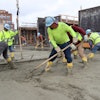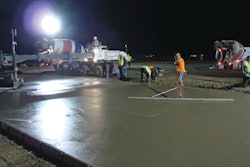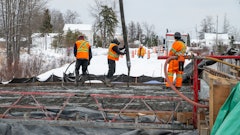As we enter the second half of Donald Trump’s presidency it is clear that things are starting to change. Mostly, this benefits concrete contractors.
The U.S. Supreme Court decided at the end of last year’s term that class action waivers in employment arbitration agreements are enforceable. This decision reversed the National Labor Relations Board’s efforts to invalidate class action waivers. Effectively, this means that all employers are more likely to use arbitration agreements to avoid costly litigation.
The five member NLRB is now Republican controlled which means that the Board is likely to tilt the labor/employment field in favor of employers. That is already happening in some areas. For example, in September the Board issued a proposed rule that would make it much harder for employers to be held liable for actions of staffing companies, franchisees, and related organizations. In effect, the putative joint employer must exercise actual control over terms and conditions of employment. It is likely that the proposed rule will become final this Spring.
Another area where the Board is shifting is review of employer handbook provisions. The Obama-era Board was quick to assume that handbook language was ambiguous and therefore could be interpreted as violating employees’ Section 7 right to engage in protected, concerted activity. Now, however, the Board will evaluate the potential impact upon Section 7 rights and the employer’s justification for the rule/policy. The NLRB’s General Counsel issued a memorandum instructing regional offices about the new test, and the memorandum essentially concludes that many rules that were once suspect can now be considered lawful. Examples include rules protecting confidential and customer information, rules prohibiting disruptive behavior, insubordination, non-cooperation, or defamation, as well as rules prohibiting disloyalty, use of company logos, and speaking on behalf of the employer without authority. Still, some employer rules will be deemed unlawful, e.g., rules requiring confidentiality about wages or working conditions and rules prohibiting the joining of outside organizations. On balance, however, these are welcome changes in the Board’s policy.
The pro-employer shift can be seen at other federal agencies also. The U.S. Department of Labor recently restored the use of opinion letters to answer wage-hour questions. DOL recently held public “listening sessions” to hear employer comments about overtime exemption and the minimum salary test. It is anticipated that DOL may publish a new proposed rule sometime early in 2019, although that may be delayed pending appointment of a Wage and Hour Division Administrator. It is likely that any proposed rule would adopt a minimum salary test significantly lower than that proposed under the Obama administration.
Not surprising given the increasing attention the #MeToo phenomenon has generated, the EEOC reported a substantial increase in the number of sexual harassment claims filed. Appellate courts are increasingly finding that transgender and sexual orientation discrimination violate Title VII. This means that contractors must be especially careful dealing with these issues.
Recently, a court permitted a website access lawsuit by a disabled person who claimed inability to access critical employer information about its hiring process. This suggests that contractors need to have their websites reviewed to ensure that the site is more accessible to those with disabilities.
The Occupational Safety and Health Administration recently published its top 10 list of violations. Fully half of that list related directly to construction. OSHA’s top 10 for 2018:
- Fall protection -- construction
- Hazard Communication – general industry
- Scaffolds – construction
- Respiratory protection – general industry
- Lockout/tagout – general industry
- Ladders – construction
- Powered industrial trucks – general industry
- Fall protection training – construction
- Machine guarding – general industry
- Personal protective and lifesaving equipment – construction
This list suggests that concrete contractors need to focus on safety more than ever, especially as it relates to fall protection.
Finally, numerous new state and local laws will be taking effect in 2019. These include legislation regarding salary history, harassment training, criminal history, contraceptives, veterans leave, minimum wage, and paid sick leave. Also, marijuana legislation continues: medical marijuana is now legal in Missouri and Utah, and recreational use of marijuana is now legal in Michigan. Marijuana remains illegal under federal law and that does not seem likely to change while Trump is president.
Naturally, this is not all that has changed or will be changing. Concrete contractors should stay tuned and pay attention.



















